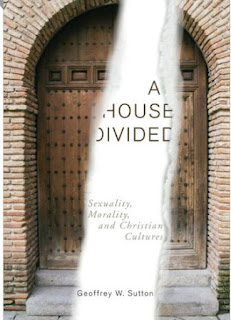We are currently awash in #metoo notices on social media sites. A catharsis of massive proportions has followed in the aftermath of Hurricane Harvey. As with any storm, news sources examine the origins and publish a chronology. The current storm hit the U.S. 5 October when the NYT published salacious allegations.
Now, two weeks later, the storm has abated. Other news stories are headlines. Meanwhile, clean-up after Hurricane Harvey continues. We don't know how many lives have been destroyed. Heavy rains have affected many beyond the eye of the storm. People are hurting. Some still await care.
As with any storm, accusatory fingers point in many directions. There are reasonable calls for climate change-- we must end the rape climate that creates the conditions giving rise to such sexual hurricanes. They are right of course--women, that is. Men are responsible for most of the problems. We do need to change.
The helpfulness of metoo reports provides a Johari-like window of insight for sensitive men. Looking back, some of us can see how we contributed to the destructive climate. I apologize for insensitive comments. Other have too.
The strong wave of contemporary feminism occurred in the 1990s ,though there were earlier movements to be sure. The movement itself helped create a greater awareness amongst sensitive men about the insensitive treatment of women. Like others born many decades ago, I learned to change my language and beliefs about women's roles in society--including governments, churches, and the military. I saw how feminism was a blessing to society. Too many keen intellects were missing from solving the important problems we all face.
As the clean-up after the current storm proceeds, we must see if there are any lessons to learn that have not already been identified. This will not be easy because the emotional waters are still high. A lot of mud has covered the landscape.
Disgust is a powerful emotion-laden, expulsion-driven, life-saving response to cleanse us from germ-infested filth. Disgust quickly generalizes beyond vomit and manure to reject the dirty side of sex that robs people of their humanity. Women have been degraded in our eyes. We humans can only take so much disgust before we avert our eyes. We need to wash our souls.
Look for the word disgust in so many articles and comments about sexual harassment and abuse. Look for attitudes of contempt. There are powerful emotions behind the words. There is anger. And sometimes there is hate. There is a world of hurt. As my psychologist friend, Dr. Grant Jones, often says, before hurt people can forgive they need to claim their "pound of flesh."
Like any dirty job, people want a break. We see the desire for a break in the change in headlines. We see the need for relief in those men who fight back against blame in the comments sections of accusatory articles. Overexposure robs workers of their capacity to clean-up.
But like all important work, the clean-up must continue. After a short break-- a time to refresh and see beauty once more, we must return to the arduous task. We must continue to read the stories of those who have been hurt. We must be about changing the climate of relationships. We must help survivors recover. We must strengthen social levees and rebuild our culture with stronger foundations of respect.
As the emotional waters subside, we will be better able to re-examine the words and actions that cross the line of respect between the sexes at work, school, places of worship, and everywhere.
- We need examples to see the difference between what is funny about sex and what is degrading.
- We need to learn how to approach each other in respectful ways.
- We need to keep up the rhetoric about consent.
- We need to see how power and sex combine to hurt others.
- We need to report sexual harassment.
- And we need to support those who have been harassed.
As with any serious clean-up effort, some people are better prepared than others to deal with the stench. Rape, sexual assault, and sex trafficking are repulsive. Workers will see disgusting things about humanity. We need workers equipped for the task. We can look to our universities to prepare such workers. Those who feel ill-equipped to do such work can support the efforts of these responders.
We must not forget
There are millions of loving couples.
There are women who love the men in their lives.
There are men who respect women.
Psychology of Disgust: Related Posts
Why Christians Have Problems Loving the "Unholy"
How Metaphors Mess with our Minds and Destroy Lives
Sexual Harassment and Assault: Related Posts
Psychology of Sexual Harassment
MICROAGGRESSIONS at WORK and SCHOOL
About Sexuality and Morality in Christian Cultures

AVAILABLE FROM PICKWICK and many book sellers around the world
Geoffrey W. Sutton, PhD is Emeritus Professor of Psychology. He retired from a clinical practice and was credentialed in clinical neuropsychology and psychopharmacology. His website is www.suttong.com
See Geoffrey Sutton’s books on AMAZON or GOOGLE STORE
Follow on FACEBOOK Geoff W. Sutton
You can read many published articles at no charge:
Academia Geoff W Sutton ResearchGate Geoffrey W Sutton
Dr. Sutton’s posts are for educational purposes only. See a licensed mental health provider for diagnoses, treatment, and consultation.


Comments
Post a Comment